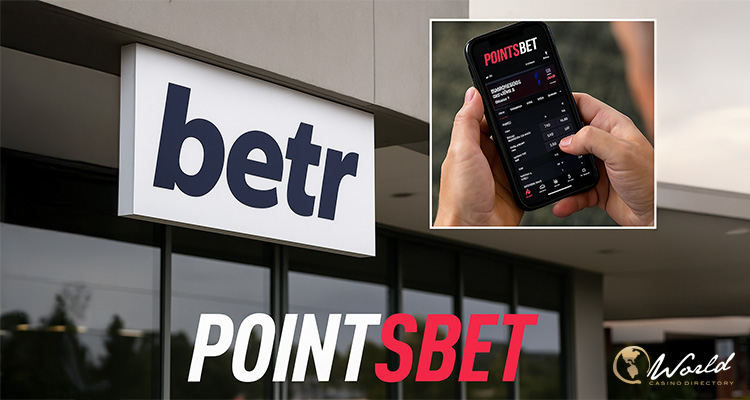Australian sportsbook operator PointsBet has once again declined a takeover proposal from rival Betr, pointing to concerns around the stability and risk profile of Betr’s revenue model. The company instead endorsed a competing acquisition offer from Japanese firm MIXI Australia, citing its all-cash structure as more secure and favorable for shareholders.
The offer from Betr, which proposed an exchange of 3.81 shares for each PointsBet share, was dismissed by PointsBet’s board as “materially inferior” to MIXI’s cash offer of A$1.20 per share. MIXI’s bid, which opened for acceptance on 22 July, comes with the backing of regulatory approvals from both Australian and Canadian gaming authorities.
MIXI has already secured significant shareholder support. Institutional investors like Bennelong Long Short Equity Management and Pictet Asset Management have committed to the deal, while PointsBet’s directors, who collectively hold 8.02% of the company’s shares, have also expressed their intention to accept MIXI’s offer. Combined, this gives MIXI pre-bid control over 17.18% of PointsBet stock.
PointsBet Flags VIP Concentration and Regulatory Risk in Betr’s Model
In a detailed statement (pdf) to the Australian Securities Exchange (ASX), PointsBet expressed significant reservations about Betr’s business structure. Most notably, the board warned that over 50% of Betr’s net win in January 2025 was derived from just 20 customers—a tiny fraction of its total user base of approximately 340,000, with around 150,000 considered active.
“The value of the Unsolicited Betr Scrip Offer will change over time (given it is an all-scrip proposal) and the cash value realizable by PointsBet shareholders (should they wish to sell any Betr shares issued to them) is uncertain given the low liquidity of Betr’s shares on ASX,” the company said in its filing.
In the same document, PointsBet highlighted risks inherent to a customer base dominated by high-rolling individuals. “There are meaningful risks associated with a VIP-heavy customer base, including: the long-term sustainability of this revenue is open to question (particularly as Betr pays fees to third parties to manage some of these relationships),” the statement read.
This VIP-centric model, according to PointsBet, poses potential regulatory and compliance challenges, echoing concerns raised in broader policy discussions around responsible gambling in Australia.
VIP-Heavy Strategy Sparks Wider Industry Debate
The concerns over Betr’s revenue structure come amid heightened scrutiny of VIP gambling practices in the country. The late Labor MP Peta Murphy’s 2023 report found that VIP programs were commonly used by operators to incentivize and retain high-value gamblers, often through personalized engagement and exclusive offers.
Financial Counselling Australia, which advocates for individuals harmed by gambling, told the Murphy inquiry that such customers are typically managed one-on-one by staff and encouraged to continue betting, although Betr was not specifically named in their submission.
The regulatory environment has already tightened in recent months. In May, PointsBet itself faced penalties for breaching self-exclusion and spam laws, incurring a fine of $500,800 from the Australian Communications and Media Authority. The company was found to have sent hundreds of promotional messages to individuals who had opted out of gambling communications.
These developments have intensified calls for reform. Murphy’s inquiry recommended a blanket ban on all gambling advertising following a three-year transition period—a policy the federal government has yet to formally adopt.
Government Resumes Consultations on Gambling Reforms
Despite delays, the Albanese government has resumed discussions around gambling regulation. Communications Minister Annika Wells told parliament this week that talks have restarted with key stakeholders, including broadcasters, sporting bodies, and harm reduction advocates.
“I know the minister for social services [Tanya Plibersek] and myself have been working together on this and we are committed to continuing the work of the previous ministers from the first term,” Wells stated during question time.
While the government has not committed to implementing Murphy’s recommendation to eliminate all gambling advertising, sources indicate that consultations are now centered on identifying sticking points and exploring potential compromises. A resolution is expected before the end of the year.
Lobbyists representing major gambling firms have also been spotted in Parliament House recently, suggesting high industry interest in shaping the outcome of these regulatory talks.
Betr’s Model Raises Strategic Compatibility Questions
Beyond regulatory concerns, PointsBet also cast doubt on the strategic fit between the two companies. The operator noted that 65% of combined turnover and 61% of net win across both companies comes from customers who hold accounts with both Betr and PointsBet.
Betr’s business focus also leans heavily on horse racing, which accounts for 85% of its net win—a level of product concentration that PointsBet described as risky and potentially unsustainable. Overall, PointsBet concluded that Betr’s customer overlap, lack of diversification, and heavy reliance on high-spending clients made its business model “unattractive.”
By contrast, MIXI’s cash proposal offers shareholders immediate value without relying on fluctuating stock prices or unproven synergies. The offer remains open until 25 August unless extended, and requires a minimum acceptance level of 50.1% of PointsBet shares to proceed.


